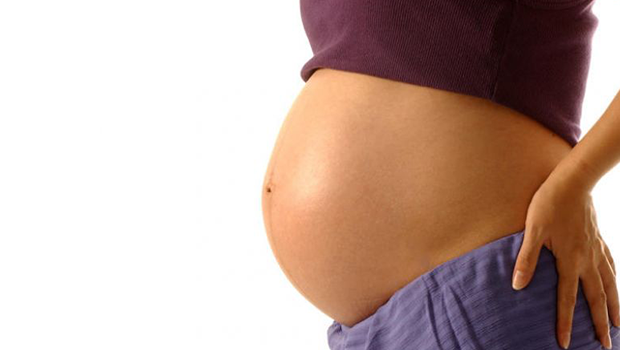
Despite evidence suggesting that regular exercise during pregnancy reduces the risk of gestational diabetes, pregnant women tend to be less active due to physical and psychological barriers, as well as cultural ones.PHOTO: ST FILE
The first guidelines on physical activity and exercise for pregnant women were released on Friday (Jan 10) in a bid to curb the high rate of gestational diabetes here.
Gestational diabetes (GDM) is on the rise globally due to increasing childbearing age as well as pre-exisiting diabetes and obesity in pregnancy, said Dr Amy Khor, Senior Minister of State for Health at the launch, which was held at a diabetes conference at KK Women's and Children's Hospital.
"About 20 per cent of pregnant mothers in Singapore develop GDM, which is considered high as the worldwide prevalence of GDM is estimated to be around 7 to 10 per cent," said Dr Serene Thain, an associate consultant at KKH's department of maternal fetal medicine, on the sidelines of the launch event.
"Of these, about 20 to 50 per cent of them may go on to develop Type 2 diabetes in the next five to 10 years."
Excessive weight gain increases the risk of GDM: A study led by KK Women's and Children's Hospital and published in August last year found that the prevalence of obesity in pregnancy is high in Singapore - about 24 per cent of the women surveyed were overweight and 11 per cent obese.
Dr Khor said that despite evidence suggesting that regular exercise during pregnancy reduces the risk of gestational diabetes, pregnant women tend to be less active due to physical and psychological barriers, as well as cultural ones.
She noted that when she was pregnant, she was told to "eat more, rest more and don't work so hard". Doctors thus have a part to play in encouraging pregnant women to exercise, she added.
If not detected or well managed, GDM will lead to adverse consequences such as cesarean section, foetal macrosomia, stillbirth and risk of developing Type 2 diabetes later in life not just for the mother, but for the child as well, said Dr Khor.
Professor Tan Kok Hian, the head and senior consultant of the Perinatal Audit and Epidemiology Unit at KKH, said babies of obese mothers are at an increased risk of being born stillborn, with congenital malformations, or with macrosomia, which describes a newborn who is significantly larger than average - or 3.8kg and above in Singapore.
Contrary to popular thinking, studies have shown that exercise does not increase pregnancy complications, said Prof Tan, who is also the lead principal investigator for the Integrated Platform for Research in Advancing Metabolic Health Outcomes in Women and Children (IPRAMHO), which supports the guidelines.
"Pregnancy is an ideal occasion to teach the population about weight control ... If you educate the mothers, you actually educate the whole family," he said.
The guidelines, which states that healthy women with uncomplicated pregnancies should engage in at least 150 minutes of moderate-intensity physical activity a week, among other recommendations, will be distributed to all obstetricians and gynaecologists practising in Singapore.
They were developed by a Committee of Exercise in Pregnancy, which comprises key members from IPRAMHO, led by KKH, in partnership with the SingHealth Polyclinics and National Healthcare Group Polyclinics, as well as the Obstetrical & Gynaecological Society of Singapore, Perinatal Society of Singapore and Exercise is Medicine Singapore.
Dr Liana Koe, an obstetrician and gynaecologist at Thomson Medical Centre, said light to moderate exercise in pregnancy helps to prevent excessive weight gain, which can increase the risk of not just diabetes in the mothers, but also hypertension and heart problems. With excessive weight gain, babies also tend to be larger, with increased risks of future childhood obesity, she said.













 Get it on Google Play
Get it on Google Play